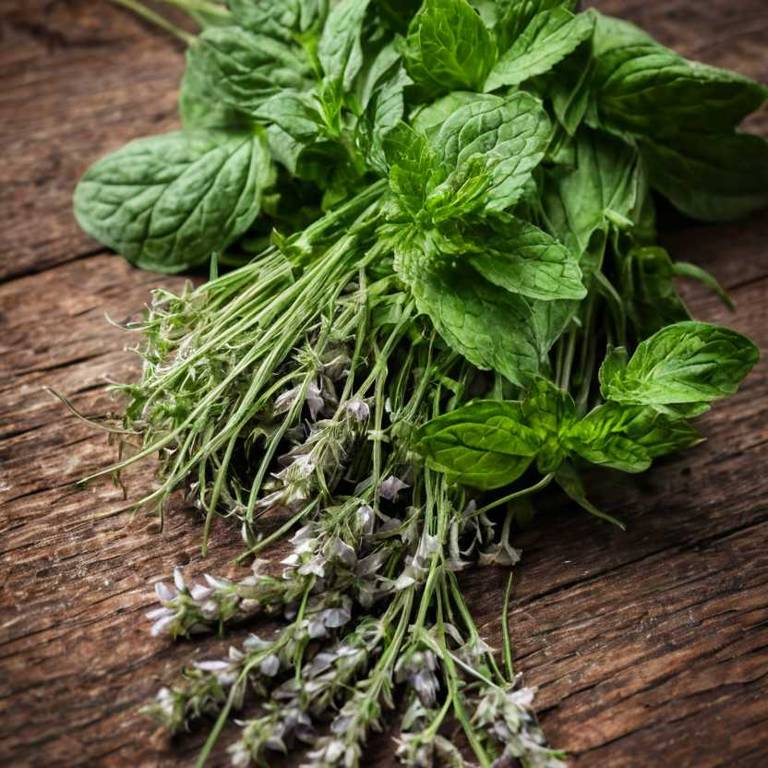By Leen Randell
Updated: Jul 05, 2024
What Are The Medicinal Properties Of Plantago Major (Plantain)?

Plantago major, also known as plantain, has health benefits such as reducing inflammation, soothing skin irritations, and aiding digestion.
The herb contains medicinal constituents like flavonoids, tannins, and phenolic acids that contribute to its therapeutic effects. Plantain can be prepared as a tea, tincture, or salve, and is often used topically for its antiseptic and anti-inflammatory properties. Side effects of plantain use are generally mild, but may include allergic reactions or interactions with other medications.
Precautions should be taken by individuals with sensitive skin, pregnant or breastfeeding women, and those with underlying medical conditions.
This article explains the health benefits, active constituents, medicinal preparations, possible side effects, and precautions related to Plantago major.
What are the health benefits of Plantago major?
Plantago major, also known as plantain, has health benefits such as reducing inflammation, soothing irritated skin, and supporting digestive health.
The plant's leaves and roots are rich in antioxidants, which help protect against cell damage and oxidative stress. Traditionally, plantain has been used to treat wounds, cuts, and burns due to its antimicrobial and antiseptic properties.
Its soothing effects also make it a popular remedy for skin irritations, such as eczema and acne.
Here's a detailed article about the 10 health benefits of Plantago major.
What are the active constituents of Plantago major?
Plantago major, also known as plantain, has active constituents such as aucubin, a iridoid glycoside, and phenolic acids, including caffeic acid and rosmarinic acid.
Aucubin is known for its anti-inflammatory and antimicrobial properties, while the phenolic acids possess antioxidant and anti-inflammatory activities.
These constituents contribute to plantain's traditional uses in herbal medicine for treating wounds, skin conditions, and respiratory issues, such as bronchitis and coughs.
Here's a detailed article about the 10 active constituents of Plantago major.
What are the medicinal preparations of Plantago major?
Plantago major, also known as plantain, has medicinal preparations such as tinctures, infusions, and poultices.
The leaves are rich in mucilage, a soothing and protective agent, which makes them useful for treating skin irritations, wounds, and digestive issues.
It is also employed to treat respiratory problems, such as bronchitis and coughs, and is used topically to treat burns, eczema, and varicose veins.
Here's a detailed article about the 10 medicinal preparations of Plantago major.
What are the possible side effect of using Plantago major improperly?
Improper use of Plantago major, also known as plantain, increases the chances of experiencing side effects such as gastrointestinal disturbances, including diarrhea and stomach cramps.
Excessive consumption can also lead to allergic reactions, such as skin rashes and itching. In rare cases, plantain may interact with medications, causing adverse effects like bleeding or reduced blood pressure.
Pregnant or breastfeeding women should consult a healthcare professional before using plantain.
Here's a detailed article about the 10 most common side effects of Plantago major.
What precautions to take when using Plantago major medicinally?
Before using Plantago major, also known as plantain, for medicinal purposes, you must take precautions such as consulting a qualified healthcare practitioner or herbalist.
As with any herbal remedy, potential allergic reactions, interactions with medications, or exacerbation of underlying health conditions may occur.
Additionally, pregnant or breastfeeding women, as well as children, should exercise caution when using plantain medicinally, and follow recommended dosages and preparation methods.
Here's a detailed article about 10 precautions to take when using Plantago major.